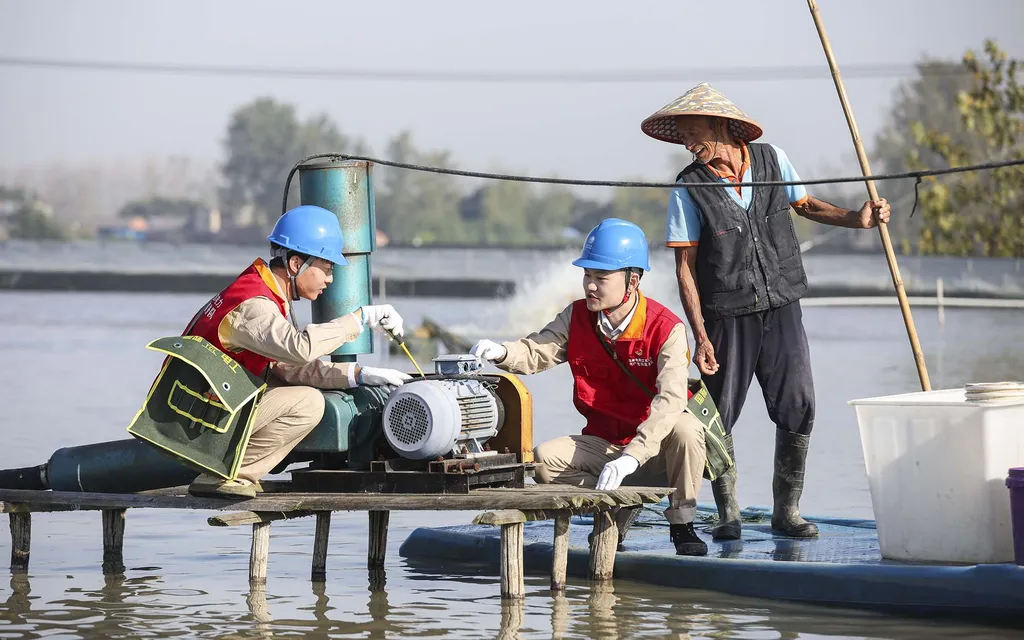In the heart of Jiangsu University, Zhenjiang, China, a team of researchers led by Chao Zhang from the School of Electrical and Information Engineering is pioneering a technological revolution that could reshape the future of agricultural machinery. Their recent paper, published in the journal *Agriculture* (translated to English as “Nongye” in Chinese), delves into the electrification of agricultural equipment, focusing on the permanent magnet synchronous motor (PMSM) drive system. This innovation is not just about enhancing the performance of farm machinery; it’s about addressing the critical need for sustainable agricultural development and increasing global food production.
The electrification of agricultural equipment is a burgeoning field, and at its core lies the PMSM drive system. These systems face significant challenges in the unpredictable and demanding environments of farmlands, where sudden load changes, extreme operating conditions, and strong interference are the norm. Chao Zhang and his team have systematically reviewed key technological advancements to overcome these hurdles, providing a comprehensive analysis of solutions to enhance the reliability of power converters.
One of the standout features of their research is the exploration of high-frequency silicon carbide (SiC)/gallium nitride (GaN) power device packaging, thermal management, and electromagnetic compatibility (EMC) design. These advancements are not just academic exercises; they have real-world implications for the energy sector. As Chao Zhang explains, “The integration of SiC and GaN power devices into agricultural equipment can significantly improve energy efficiency and reduce operational costs. This is a game-changer for the energy sector, as it opens up new avenues for sustainable and cost-effective energy solutions.”
The paper also delves into high-performance motor control algorithms such as Direct Torque Control (DTC) and Model Predictive Control (MPC), which aim to improve dynamic response. Robust control strategies like Sliding Mode Control (SMC) and Active Disturbance Rejection Control (ADRC) are explored to enhance resilience, while the latest progress in fault-tolerant control architectures incorporating sensorless technology is also discussed.
The research identifies core challenges in large-scale applications, including environmental adaptability, real-time multi-machine coordination, and high reliability requirements. Innovatively, the team proposes a closed-loop intelligent control paradigm that encompasses environmental disturbance prediction, control parameter self-tuning, and actuator dynamic response. This paradigm provides theoretical support for enhancing the autonomous adaptability and operational quality of agricultural machinery in unstructured environments.
Looking ahead, the paper outlines future trends involving deep AI integration, collaborative hardware innovation, and agricultural ecosystem construction. These trends are not just about technological advancements; they represent a shift towards a more sustainable and efficient agricultural sector. As Chao Zhang notes, “The future of agricultural machinery lies in its ability to adapt and respond to the ever-changing demands of the farmland environment. Our research is a step towards achieving this goal.”
The implications of this research extend beyond the agricultural sector. The energy sector stands to benefit significantly from the advancements in PMSM drive systems. As agricultural equipment becomes more energy-efficient and reliable, the demand for sustainable energy solutions will grow. This, in turn, could drive innovation in the energy sector, leading to the development of new technologies and solutions.
In conclusion, the work of Chao Zhang and his team at Jiangsu University is a testament to the power of innovation and the potential of technological advancements to drive sustainable development. Their research not only addresses the challenges faced by agricultural machinery but also opens up new possibilities for the energy sector. As we look to the future, the integration of AI, collaborative hardware innovation, and agricultural ecosystem construction will play a crucial role in shaping the landscape of sustainable agriculture and energy.

